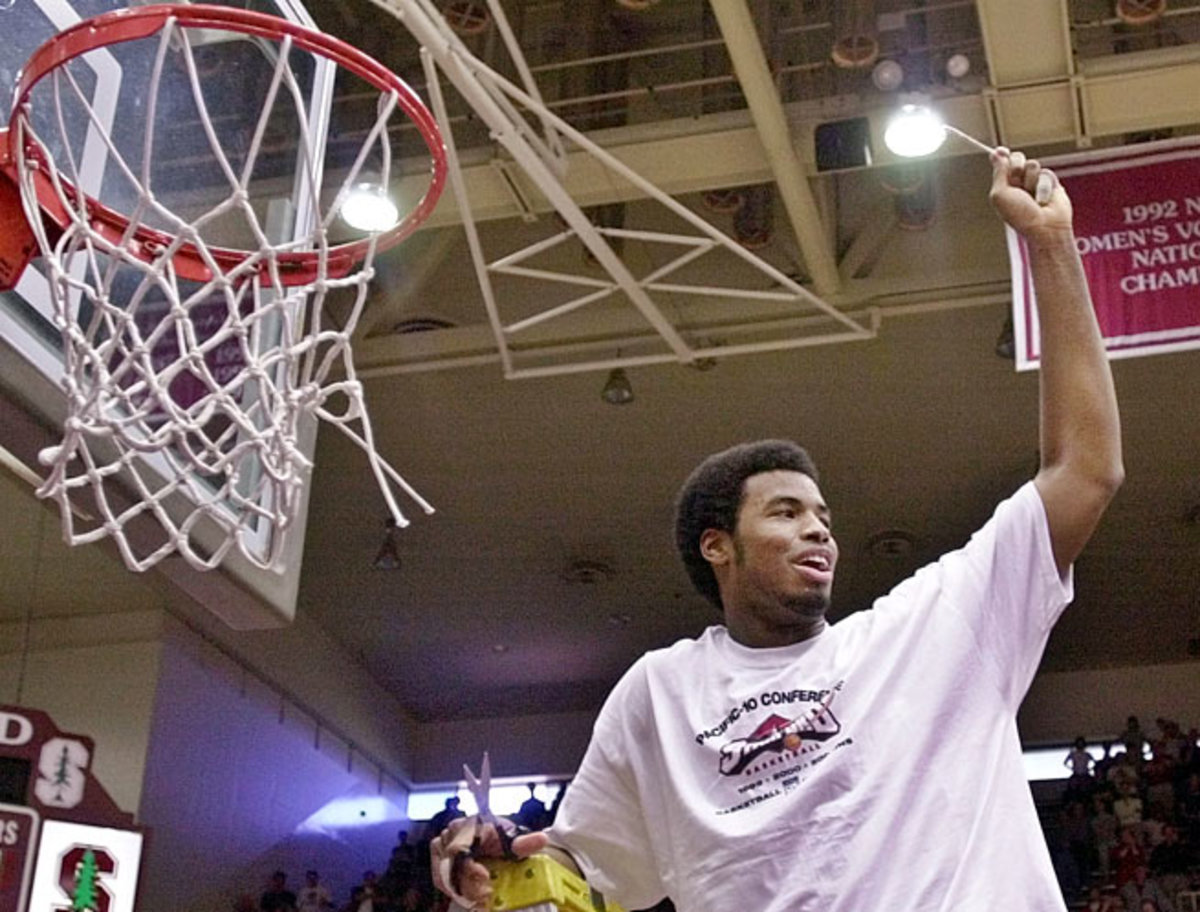Stanford applauds Collins' decision to come out
STANFORD, Calif. -- NBA journeyman. That's the description that Jason Collins has carried with him from franchise to franchise, like a luggage tag, for most of his pro career. He has gone from New Jersey to Memphis to Minnesota to Atlanta to Boston to Washington, D.C. -- six teams in 12 seasons, most of them brief stops.
If Collins has a true basketball home, it is here on the picturesque Stanford campus, where he and his twin brother, Jarron, once helped turn the Cardinal into the top-ranked team in the country, and where, after his announcement in Sports Illustrated on Monday that he is gay, folks on the Farm are prouder than ever to call him family.
"One of our Stanford sons," is how athletic director Bernard Muir described him, expressing his pride that Collins "has taken a leadership role on this topic. I applaud his decision to be true to his identity and, from his own words, start this conversation in major professional sports."
There aren't many people left in the basketball program from Collins' tenure from 1997-2001, but the day after his announcement, there were unspoken signs of the connection between the school and the player. One student sped past the bookstore on his bike Tuesday afternoon wearing a Stanford T-shirt with "Collins 98" on the back in red duct tape, a makeshift replica of the jersey number Collins has worn the past two seasons in honor of Matthew Shepard, who was murdered in a brutal homophobic hate crime in 1998. A column in the student newspaper, the Stanford Daily, applauded Collins for "providing a positive role model for young athletes struggling to come out to teammates, parents and friends," and for helping to "debunk the malicious myth that homosexuality makes you weak and unathletic."
His Stanford ties aside, it's not surprising that a place populated with young minds would show such strong support for Collins. The generational differences in attitudes toward homosexuality have been apparent in the early reaction to his coming out. Some of the more prominent voices that have been less than supportive -- like sportscaster Tim Brando, 57, who took issue with calling Collins a "hero" -- have been among the older set. Collins may find that his some of his greatest supporters are among, but not limited to, the young.
He will certainly find allies in the place he once called home.
"There's a lot of support here for Jason, as you might imagine," said Stanford assistant coach Mark Madsen, who played with Collins for three seasons with the Cardinal and one in the NBA with the Timberwolves. "That's because of the kind of person he was when he was here, and that he has continued to be since he left. He is not defined by basketball, or by his decision to come out. What defines him is the way he treats other people, his intellectual pursuits and the contribution he's made to this university and every team or community he has been a part of."
Madsen was in a parking lot near Stanford's business school on Monday when Collins called him. He thought his old teammate wanted to talk about pursuing an MBA because Collins had told him about attending a Harvard business school class and Madsen recently finished his MBA classes. Instead, Collins told Madsen about the announcement that he would be reading about soon.
"I was gratified to know he considered me a close enough friend to call me and tell me," Madsen said. "I told him, 'Jason, I love you, and I've got your back.' "
So do many of Collins' other former Cardinal teammates, even if some of them were "still in shock," according to former Stanford guard Julius Barnes, the day after hearing his announcement.
"Not that it would make any difference at all, but I never knew, never had any indications," said Barnes, who played two seasons with Collins. "So it's surprising in a way, but I know for a fact that his former teammates and anybody that knows Jason is 100 percent behind him."
Collins is well suited to his new, prominent role, according to Madsen, because of his ability to "connect with different kinds of people." He clearly did that at Stanford, the place where, no matter how much of a journeyman he might be, he will always be able to call home.






